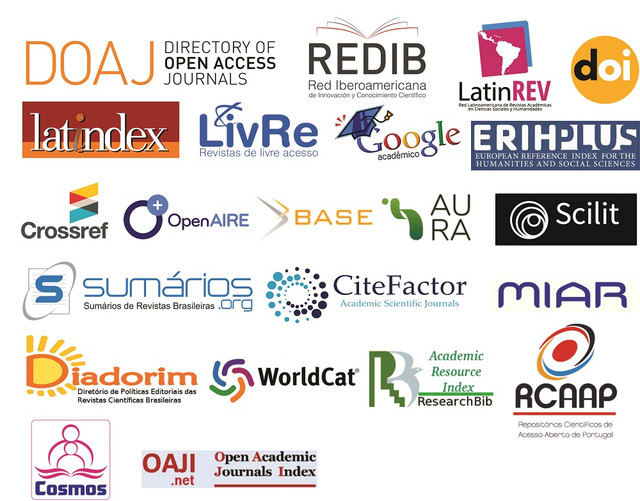PHARMACOLOGICAL INNOVATIONS AND NEUROSCIENCES IN HEALTHCARE
DOI:
https://doi.org/10.59087/biofarma.v4i1.37Keywords:
Pharmaceutical Process, pharmacology, innovationAbstract
This article discusses emerging innovations in drug treatments, exploring their intersection with neuroscientific discoveries. We analyze the impact of these innovations on nursing practices and public health policies, emphasizing the need to adapt professional training and health systems to maximize benefits for the population. We discuss contemporary challenges such as drug resistance, the growing need for holistic approaches to patient care, and the use of technology for monitoring and interventions.
Downloads
References
Fava M, Davidson KG. Definition and epidemiology of treatment-resistant depression. Psychiatr Clin North Am. 1996 Jun;19(2):179-200. https://doi.org/10.1016/s0193-953x(05)70283-5 PMID: 8827185.
Huang HM, Huang CY, Lee-Hsieh J, Cheng SF. Establishing the competences of clinical reasoning for nursing students in Taiwan: From the nurse educators' perspectives. Nurse Educ Today. 2018 Jul;66:110-116. https://doi.org/10.1016/j.nedt.2018.04.007 Epub 2018 Apr 14. PMID: 29702439.
Khoury R, Patel K, Gold J, Hinds S, Grossberg GT. Recent Progress in the Pharmacotherapy of Alzheimer's Disease. Drugs Aging. 2017 Nov;34(11):811-820. https://doi.org/10.1007/s40266-017-0499-x PMID: 29116600.
Leichsenring, F., Abbass, A., Fonagy, P., Levy, K. N., Lilliengren, P., Luyten, P., et al. (2024). WHO treatment guideline for mental disorders. The Lancet Psychiatry, 11(9), 676-677. https://doi.org/10.1016/S2215-0366(24)00169-X
Lewczuk, Piotr, et al. "Clinical significance of fluid biomarkers in Alzheimer’s Disease." Pharmacological Reports 72 (2020): 528-542.
McIntyre RS, Alsuwaidan M, Baune BT, Berk M, Demyttenaere K, Goldberg JF, Gorwood P, Ho R, Kasper S, Kennedy SH, Ly-Uson J, Mansur RB, McAllister-Williams RH, Murrough JW, Nemeroff CB, Nierenberg AA, Rosenblat JD, Sanacora G, Schatzberg AF, Shelton R, Stahl SM, Trivedi MH, Vieta E, Vinberg M, Williams N, Young AH, Maj M. Treatment-resistant depression: definition, prevalence, detection, management, and investigational interventions. World Psychiatry. 2023 Oct;22(3):394-412. https://doi.org/10.1002/wps.21120 PMID: 37713549; PMCID: PMC10503923.
Moulaei, K., Sheikhtaheri, A., Fatehi, F. et al. Patients’ perspectives and preferences toward telemedicine versus in-person visits: a mixed-methods study on 1226 patients. BMC Med Inform Decis Mak 23, 261 (2023). https://doi.org/10.1186/s12911-023-02348-4
Pais, M., Martinez, L., Ribeiro, O., Loureiro, J., Fernandez, R., Valiengo, L., Canineu, P., Stella, F., Talib, L., Radanovic, M., & Forlenza, O. V.. (2020). Early diagnosis and treatment of Alzheimer’s disease: new definitions and challenges. Brazilian Journal of Psychiatry, 42(4), 431–441. https://doi.org/10.1590/1516-4446-2019-0735
Piggin, Maria M. Abordando a desigualdade de acesso a produtos biológicos: qual é o seu papel? A perspectiva de um paciente (defensor) sobre biossimilares. HemaSphere 6(4):p e702, abril de 2022. | doi.org/10.1136/10.1097/HS9.0000000000000702
Sevigny J, Chiao P, Bussière T, Weinreb PH, Williams L, Maier M, Dunstan R, Salloway S, Chen T, Ling Y, O'Gorman J, Qian F, Arastu M, Li M, Chollate S, Brennan MS, Quintero-Monzon O, Scannevin RH, Arnold HM, Engber T, Rhodes K, Ferrero J, Hang Y, Mikulskis A, Grimm J, Hock C, Nitsch RM, Sandrock A. The antibody aducanumab reduces Aβ plaques in Alzheimer's disease. Nature. 2016 Sep 1;537(7618):50-6. doi: 10.1038/nature19323. Update in: Nature. 2017 Jun 21;546(7659):564. https://doi.org/10.1038/nature19323 PMID: 27582220.
Varesi A, Carrara A, Pires VG, Floris V, Pierella E, Savioli G, Prasad S, Esposito C, Ricevuti G, Chirumbolo S, Pascale A. Blood-Based Biomarkers for Alzheimer's Disease Diagnosis and Progression: An Overview. Cells. 2022 Apr 17;11(8):1367. https://doi.org/10.3390/cells11081367 PMID: 35456047; PMCID: PMC9044750.
VanderWeele, T. J., Chen, Y., Long, K., Kim, E. S., Trudel-Fitzgerald, C., & Kubzansky, L. D. (2020). Positive epidemiology?. Epidemiology, 31(2), 189-193.
Zanos P, Moaddel R, Morris PJ, Riggs LM, Highland JN, Georgiou P, Pereira EFR, Albuquerque EX, Thomas CJ, Zarate CA Jr, Gould TD. Ketamine and Ketamine Metabolite Pharmacology: Insights into Therapeutic Mechanisms. Pharmacol Rev. 2018 Jul;70(3):621-660. doi: 10.1124/pr.117.015198. Erratum in: Pharmacol Rev. 2018 Oct;70(4):879. https://doi.org/10.1124/pr.117.015198 PMID: 29945898; PMCID: PMC6020109.
Downloads
Published
How to Cite
Issue
Section
License
Copyright (c) 2024 Biofarma - Multidisciplinary Scientific Journal of Biology, Pharmacy and Health

This work is licensed under a Creative Commons Attribution 4.0 International License.
You have the right to:
*Click on the license image above for more details.



